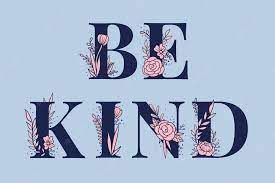World Disability Day: United in Action

Disability:
- Impairment in a person’s body structure or function, or mental functioning; examples of impairments include loss of a limb, loss of vision or memory loss.
- Activity limitations, such as difficulty seeing, hearing, walking, or problem-solving.
- Participation restrictions in normal daily activities, such as working, engaging in social and recreational activities, and obtaining health care and preventive services.
–WHO
Every year on December 3rd, the world comes together to observe the International Day of Disabled Persons/World Disability Day. The day serves as a poignant reminder of the countless individuals across the globe who live with disabilities, emphasizing the need for inclusivity, empowerment, and accessibility for all.
The theme for this year’s World Disability Day —United in action to rescue and achieve the SDGs for, with and by persons with disabilities— underscores the importance of acknowledging the diverse range of disabilities that exist. From physical impairments to neurodiversity, each individual’s experience is unique and contributes to the rich tapestry of human diversity.
On The Matter of Inclusivity
One of the fundamental pillars of World Disability Day is advocating for inclusivity in all aspects of life. This encompasses various domains such as education, employment, infrastructure, and social participation. Creating accessible environments and opportunities ensures that individuals with disabilities can fully engage and contribute to society without barriers or discrimination.
So far, 1,177 full-fledged special needs schools and 33, 603 inclusive schools exist in Nigeria with Kano (153), Kaduna (79) and Lagos (75) having the highest number of special needs schools. Last year, a total of N4B was disbursed to the 36 states and the Federal Capital Territory for the education of children with special needs within three years. This is a laudable act on the part of the government in creating opportunities for education for those who in the past would have been written off right from childhood.
Promoting Empowerment
Empowerment lies at the heart of the disability rights movement. It involves providing individuals with the tools, support, and resources necessary to lead independent and fulfilling lives. Empowerment goes beyond physical accessibility; it includes promoting education, employment opportunities, healthcare access, and fostering an inclusive societal mindset.
Several NGOs exist on the Nigerian scene to assist with this. Some names include:
- The Irede Foundation for child amputees https://www.theiredefoundation.org/
- The Cerebral Palsy Center https://cpcenter.com.ng/our-team/
- Morainbow Down Syndrome Foundation https://morainbowdownsyndromef.org/
- Sightsavers https://www.sightsavers.org/where-we-work/nigeria/
- Benola – A Cerebral Palsy Initiative https://www.benola.org/aboutus.php
- Lotus Initiative for the Blind https://www.lotusinitiativefortheblind.org/
- Disability Rights Advocacy Centre (DRAC) https://drac-ng.org/
- Deaf Women Aloud Initiative (DWAI) https://dwai.org.ng/
Governmental organizations also exist for this purpose, all under the Joint National Association of Persons with Disabilities (JONAPWD), Nigeria (info@jonapwd.org) umbrella. These include the:
- National Association of the Blind
- Nigeria National Association of the Deaf
- National Association of Persons with Physical Disabilities
- National Association of Persons with Intellectual Disabilities
- National Association of Persons Affected by Leprosy-IDEA Nigeria
- Spinal Cord Injured Association of Nigeria.
The Role of Technology
Advancements in technology have significantly enhanced the lives of people with disabilities. With assistive devices such as the Grid Pad Aid, an advanced communication aid which provides a voice for those who are unable to communicate verbally, Deka Arm, a robotic arm for veterans, diabetics and others who for one reason or another have lost limbs, the ReWalk Exoskeleton that helps people with spinal cord injuries improve their mobility, and various screen readers, braille displays and screen magnifiers, the digital landscape continues to break barriers and create new opportunities. World Disability Day highlights the importance of leveraging technology to create more inclusive and accessible solutions for all.
Crushing Stigmas and Misconceptions
One of the biggest challenges faced by the disabled community is the prevalence of stigmas and misconceptions. World Disability Day serves as a platform to challenge these prejudices, fostering understanding and empathy. It is essential as a society that we shift our perceptions from seeing disabilities as limitations to recognizing the unique strengths and perspectives that individuals with disabilities bring to the table.
Moving Forward Together
While it is imperative to acknowledge the progress made in advocating for disability rights, we cannot deny that there is still work to be done. Building a truly inclusive society requires collective efforts from governments, businesses, communities, and individuals. By working together, we can create a world where every person, regardless of ability, can thrive and contribute meaningfully.
